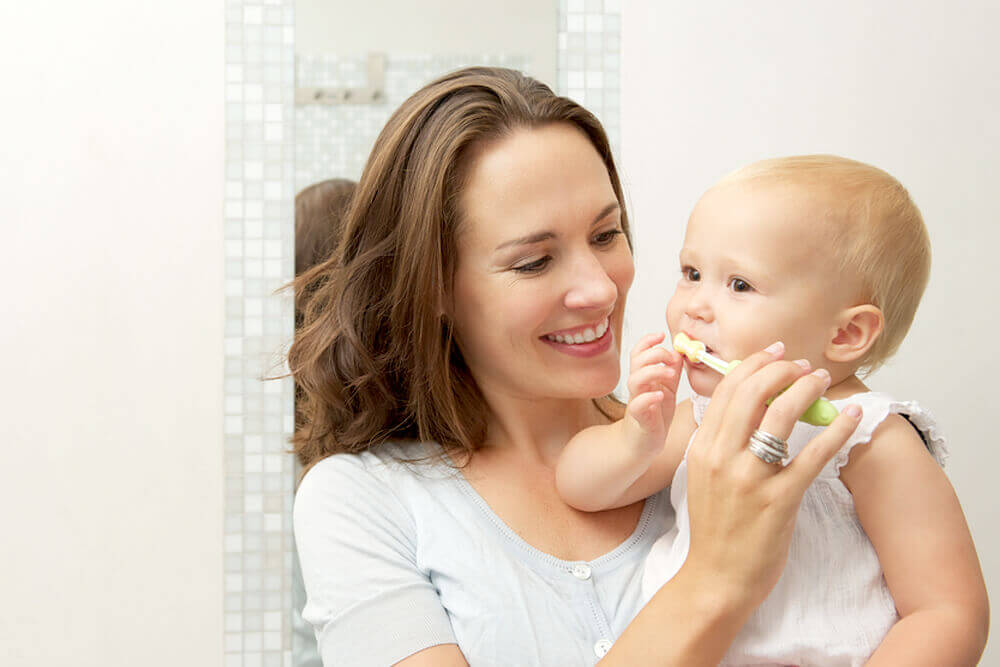When your baby’s first teeth come out, you should start taking care of their teeth right away! When it comes to dental health, get the right habits right away to prevent tooth decay and protect your teeth.
When should you start?
Babies’ first teeth usually start erupting around the sixth month. It is best to introduce this right habit to your baby right away, because cavities can also occur in milk teeth. Wipe their gums morning and evening with a cloth dampened with warm water to clean the tops of their teeth. It will also be beneficial to get into the habit of brushing teeth in front of your child. If you show your baby how you clean your teeth, he will soon want to imitate you!
From 18 months, give your baby his first toothbrush and use it to brush his teeth. From the age of 2, you can add a pea-sized amount of toothpaste to the toothbrush.
Of course, he won’t be able to grasp how to use it right away and will probably want to chew alone instead of using a toothbrush. Let him play and do the work yourself kindly if he lets you do it. Make circular movements with the brush and focus on the areas where the teeth emerge from the gums. Don’t insist if he doesn’t let you brush his teeth, he may be stubborn! Instead, offer to help out again the next day. You will probably need to help him until he is 5-6 years old when he can brush his teeth on his/her own.
Get her into the habit of brushing her/his teeth before going to bed
Get your child into the habit of brushing at least twice a day, after breakfast and before bed. This is a good habit that he will maintain throughout his life. In order for your child to start brushing their teeth, you must choose the right brush.
Your baby’s teeth and gums are very sensitive. Choose a small brush with soft bristles designed specifically for children under three to avoid irritation of the gums. There are so many models to choose from and often have kids’ favorite characters on them, which is another great way to get your child started brushing! Remember to change the toothbrush every three months, and more often if the bristles are old.
Buy toothpaste suitable for your child’s age group
As for toothpaste, get one that is appropriate for your child’s age group. These toothpastes are made specifically for children and contain less fluoride than toothpastes for adults. Avoid menthol toothpastes as the taste may be too sharp for your child. Try fruit flavors like strawberry and raspberry. These flavors are very popular with children and they may even want to eat these toothpastes. Don’t worry if your child swallows the toothpaste instead of spitting it out. These toothpastes are completely safe.
Help them develop good habits for healthy teeth. The outer enamel layer of milk teeth is thinner than the enamel layer of adult teeth. This makes them even more susceptible to tooth decay. Dental caries worsen very quickly from their formation and require prompt treatment.
Brushing regularly is essential to keeping teeth healthy, but that’s only half the job. Teach your child good eating habits by limiting the amount of sugar they consume, especially sugary drinks. Drinking a bottle of milk or juice before going to bed is harmful to the teeth. So make sure your child quits this habit as soon as possible. Your child should not drink anything but water after brushing their teeth in the evening!

